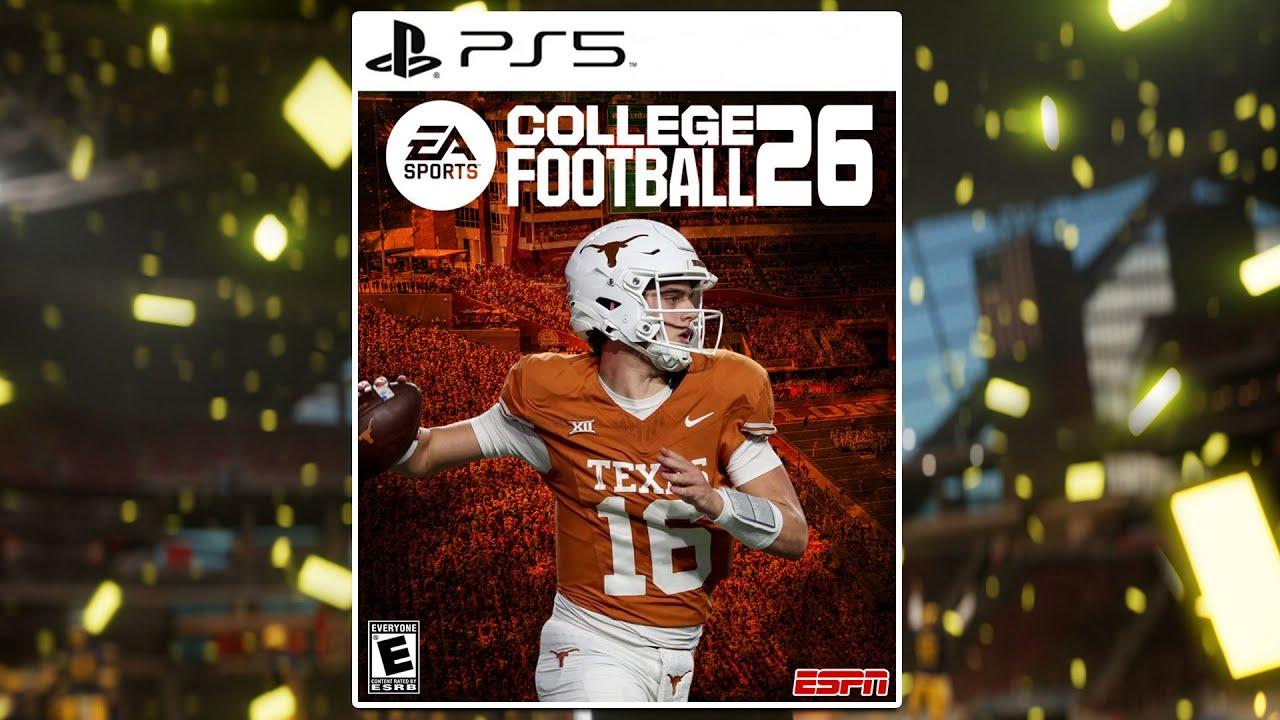Exploring the Financial Landscape of EA College Football 26
As the release of EA college Football 26 approaches, discussions surrounding the financial implications for players are intensifying. The potential for greater revenue streams has become a hot topic, with many analysts suggesting that the game could pave the way for a new era of player compensation.The landscape of collegiate athletics is evolving, and this installment of the beloved franchise could set a precedent by offering players enhanced opportunities to monetize their likenesses and performances. With the recent shifts in NCAA policies regarding athlete compensation, gamers may expect to see features that reflect real-world economics, presenting players not just as avatars on the field but as real financial entities.
Players might find themselves navigating a virtual world rich with sponsorship deals, merchandising opportunities, and performance-based incentives. Speculation abounds that the game could incorporate mechanisms for players to earn in-game currency that reflects their on-field accomplishments and marketability, mirroring the financial dynamics of their real-world counterparts. Some industry experts foresee a robust economy within the game that challenges traditional notions of amateurism, ultimately redefining how college football athletes engage with their brand. The implications of this shift could resonate well beyond the screen, influencing future negotiations and expectations regarding athlete compensation in all college sports.

Evaluating the Impact of Increased player Payouts on College Athletics
The potential for increased player payouts in college athletics could reshape the financial landscape of college sports and student-athlete experiences. By evaluating recent trends in player compensation, such as NIL deals, some institutions are beginning to explore how larger payouts might not only benefit athletes but also elevate the overall competitiveness of their programs. Increased payouts can lead to:
- Greater recruitment potential, enticing top talent to choose programs willing to invest considerably in their players.
- Improved athletic performance, as student-athletes can focus on training and growth without the burden of financial stress.
- A boost in university revenue through enhanced marketing and promotional opportunities linked to star athletes.
Conversely, this shift may raise questions about equity among student-athletes across various sports and divisions, perhaps creating disparities that could impact team dynamics. Additionally, institutions will need to ensure that they manage resources responsibly, as larger payouts might prompt budgetary strains in other areas of athletics or academics. Key considerations include:
- Balancing fair compensation for athletes while maintaining infrastructure for all sports programs.
- Establishing guidelines to prevent exploitation within the evolving landscape of athlete compensation.
- Monitoring the academic impact on students who may prioritize financial gains over educational goals.

Ensuring Fairness: Recommendations for Equitable distribution of Earnings
As collegiate sports begin to navigate the complex waters of athlete compensation, it’s crucial to implement strategies that ensure all players benefit equitably from earnings. Transparency in payout allocation must be prioritized, allowing players and fans to understand how financial decisions are made. Additionally, a solid framework for determining earnings should be established, emphasizing metrics that reward not just star players but those contributing to team success on and off the field. This could include factors such as:
- Performance metrics beyond just statistics, such as leadership and teamwork.
- Community engagement efforts and academic achievements.
- Support for injured players or those who do not see game-time but still contribute significantly.
Another critical aspect of ensuring fairness in earnings distribution is the inclusion of diverse voices in decision-making processes. Establishing an advisory board comprising current players, alumni, and industry experts could provide valuable insights into the earnings model. Such boards can help identify potential pitfalls in the distribution scheme and suggest adjustments to maintain equity. Furthermore, a commitment to regular evaluations and adjustments based on changing circumstances will help sustain a just payout system.To facilitate this, consider implementing periodic reports that analyse distribution patterns and impact, thereby fostering continuous improvement in equity among all athletes.
The Future of Player Compensation in Video Games: Lessons from EA College Football 26
The release of EA College Football 26 marks a significant shift in how video game companies approach player compensation.With the growing conversation around player rights and earnings, it’s evident that EA Sports may be setting a precedent for a new model of athlete engagement. Unlike earlier iterations, this version is expected to incorporate a range of financial opportunities for players, which could include:
- Revenue sharing: Proposals suggest that a portion of sales and microtransaction earnings could be allocated to participating athletes, recognizing their role in attracting fans and driving gameplay.
- In-game stipends: Players might receive direct payments for their likenesses and performances, similar to contracts seen in professional sports.
- Brand partnerships: EA could facilitate player endorsements, allowing athletes to monetize their presence within the game and across other platforms.
This progressive approach not only validates the contributions of athletes in the gaming industry but also reflects a broader societal shift towards fair compensation practices.As discussions surrounding player rights evolve,EA College Football 26 serves as a potential blueprint for future sports titles,prompting other developers to reconsider how they compensate the real-life counterparts of their in-game characters. Moving forward, observing how these strategies impact the overall player experience will be crucial, as the industry navigates the balance between profitability and ethical obligation.
